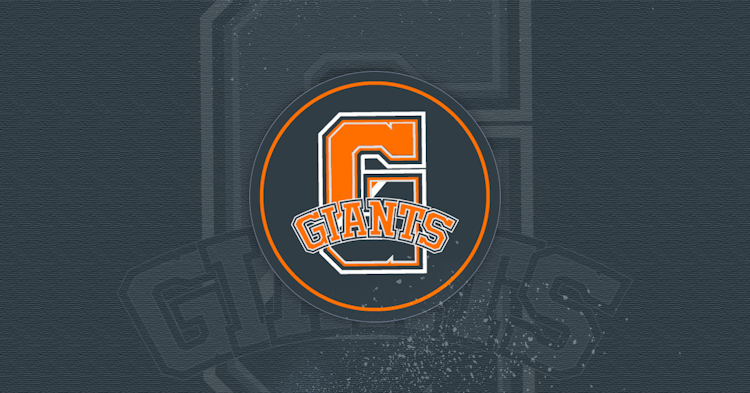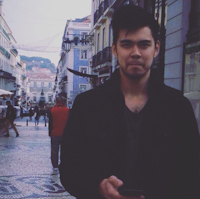The Uber-Talented, Inconsistent Giants Still Can’t Seem To Locate A Plan
Last updated: Jul 16, 2020, 4:08AM | Published: Jul 16, 2020, 2:56AM
Nobody does in-close, speed glamour better than the Giants.
The quintessential GWS passage has been seductive for half a decade now: pirouettes and quick decisions in congestion, bullet handballs, downhill momentum, space opening up, and a steady stream of precise one-touch, zero-hesitation skill that ends in a goal.
The Giants had one of those passages to kick their first goal of the last quarter against the top of the ladder Port Adelaide. A pair of rapid handballs in tight in the middle of the ground got the ball moving forward and then a delightful, deftly weighted short kick from Toby Greene set up Jeremy Finlayson's goal.
GWS re-took the lead with Finlayson's kick and seemingly, finally, had set themselves up to win.
RELATED: What's the Giant's likelihood of getting back to the Grand Final?
The clash with Port was, frankly, a dire game of football.
Both teams were horrible, with slow, drunken build up play and frequent and amateurish skill errors - plenty of uncontested looping handballs straight into the arms of opponents. It was the type of game where the commentators leapt far too eagerly to highlight anything of remote significance, celebrating 20 metre kicks that hit a target.
Until the third quarter, the highlight of the match was Shane Mumford faux-clumsily swatting the back of Scott Lycett's head in the opening stages.
After half-time, the game finally got going a little, with the Giants awakening from their slumber.
All of a sudden, they found fluency in their movement, started playing downhill, with skills more on-point, build-up play quick and varied, and space began to open up. Jeremy Cameron took a brilliant contested mark and slotted a wonderful goal, and a laughably good kick from Lachie Whitfield found Greene on the half-forward flank. Another towering mark from Cameron on the wing, followed by a scything kick inside 50, found Whitfield for an important goal.
 RELATED: Check out Stats Insider's Updated Player Ratings and DNA visualisations.
RELATED: Check out Stats Insider's Updated Player Ratings and DNA visualisations.
A dirty game was finally made clean by GWS's skill, and it looked like the pivotal turn in the match had been made.
But then the Giants stopped, and Port Adelaide were everywhere.
In the final term, after Finlayson's goal, GWS couldn't get their hands on the ball. Port played with intent and pace and the Giants were just kind of there. A cascade of Port inside 50 entries resulted, and the Power took their chances, putting the game out of reach.
It felt just, ultimately, that GWS wouldn't be allowed to get away with how sloppy their first half had been. The ultimate flick the switch team had been kicked back at the crucial moment, fingertips poised on the switch.
Port won the match and reclaimed top spot on the ladder, but the game felt more about GWS, a perfect reflection of everything they are, should be and shouldn't be.
For four or five years now the Giants have had the most talented list in the competition or thereabouts. And despite winning finals each of the past four years, making two prelims and the final day once, there is still something deeply untrustworthy about GWS.
It’s not their toughness – any doubts around that were cast away in last year’s run to the Grand Final. Only the most resilient of teams could have withstood Collingwood’s furious onslaughtfor so long in the final stages of the preliminary final at the MCG.
But a blank, dazed cluelessness seems to set in every now and then for GWS – a team-wide dysentery that led them to lose four games by 50+ points last season and score a combined 67 points across two full-length games against a Hawthorn side that didn’t make the eight.
It set in again in the first half against Port Adelaide – Lachie Whitfield standing aggrieved on the back flank, seeing nothing in front of him, throwing his hands up and yelling ‘COME ON’ was a fitting pointer to the Giants’ level of engaged consciousness.
Too often the Giants don’t seem to have enough of a plan or a structure, beyond winning the ball in close and then trying to ‘out-talent’ teams with ball in hand. In September wins last year over Brisbane and Collingwood, the Giants had fewer inside 50s, fewer scoring shots and more turnovers in both games, yet still managed to win, purely by withstanding pressure and taking their chances.
While that avenue to winning finals is surely unsustainable and not especially replicable, few teams are able to withstand pressure better than GWS.
 When they load up the defence to protect a lead and teams are forced to kick long to contests inside 50, the Giants are waiting with Nick Haynes and Phil Davis, who are the heart of the team. Haynes and Davis are the most commanding intercept marking duo in the game, geniuses who manage to get prime positioning and are fearless in backing into packs or rising over them.
When they load up the defence to protect a lead and teams are forced to kick long to contests inside 50, the Giants are waiting with Nick Haynes and Phil Davis, who are the heart of the team. Haynes and Davis are the most commanding intercept marking duo in the game, geniuses who manage to get prime positioning and are fearless in backing into packs or rising over them.
The Giants are also experts in killing games around the ball – their mids are so fast and powerful that they can lock the ball in as well as anyone around stoppages when they want to. Collingwood – in the preliminary final and three weeks ago – were helpless at the death in their attempts to create a break from a stoppage that would breathe life into their comeback. Clearances have long been GWS’s domain – elite at attacking from them and defending them.
The Giants are tough, fast, tall, strong and wonderfully skilled. But they seem to be lacking whatever small number of important things that don’t fit into these categories.
Tim Taranto and Zac Williams are still to come back, though Callan Ward will make way for them, which seems to be the curse of GWS, so rarely able to get all their stars on the park at the same time.
But personnel has never been the problem for them – it’s been arranging them on the board and getting them to find each other. Another test comes this week against Brisbane, and with it another chance to have a plan.
Did you enjoy this article? Join our free mailing list to get the best content delivered straight to your inbox, or join the conversation by leaving a comment below or on the Stats Insider Twitter or Facebook page.



